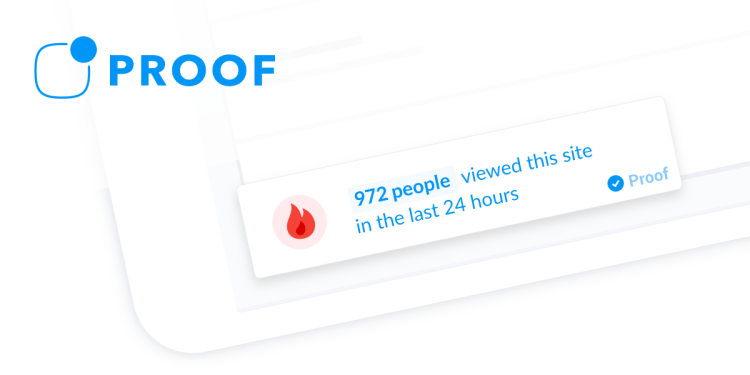When you walk into a shop or restaurant, you quickly get a feel for its popularity and ambiance. But when you’re in front of a computer, it’s hard to tell how “hot” an online marketplace is. Proof is trying to change that by providing online customers with real-time data about the website they are visiting. Examples of notifications include “Dave from Annapolis just purchased this product two minutes ago” or “438 people signed up in the last seven days.”
This already exists on websites like Booking.com or Virgin America, which tell you how many people are viewing the deal or how many rooms/seats are left.
“We are taking what these companies have mastered and offering it to small and medium-sized companies that don’t necessarily have the internal resources to develop their own proprietary software,” said Proof cofounder and CEO Dave Rogenmoser, in an interview with VentureBeat.
The chief executive says some of his customers have seen monthly sales double after launching the Proof notifications.
June 5th: The AI Audit in NYC
Join us next week in NYC to engage with top executive leaders, delving into strategies for auditing AI models to ensure fairness, optimal performance, and ethical compliance across diverse organizations. Secure your attendance for this exclusive invite-only event.
“More customers will sign up and start purchasing online when they find out how many people are live on the website, as it creates a sense of community,” he said. “People don’t want to be the dummy and get scammed. We’ve lost paying customers who wanted to fake data on their website. That’s the problem we’re trying to solve.”
Proof says it counts 3,000 customers, which include DigitalMarketer.com and Consulting.com, who pay between $29 to $1,000 per month for the software-as-a-service (SaaS).
Founded in January 2017, the Annapolis, Maryland-based startup will be relocating to Austin, Texas with its team of 10 after graduating from Y Combinator’s current batch (Winter 2018). The startup says it is fully bootstrapped, with its first institutional funding coming from YC ($120,000).

